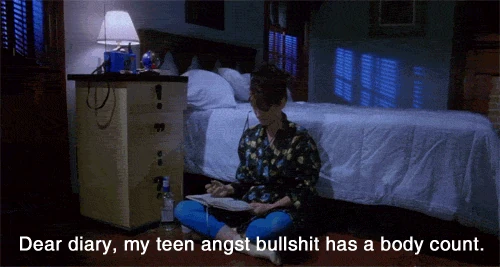(For more current updates in your inbox, sign up for my newsletter.)
I would like to have a dinner party. I want to dress up in my new dress that just arrived today, even though I have nowhere to wear it to; it’s a red shift with a colourful border at the hem and a transparent billowy thing that goes on top of it and the whole thing closes with a cloth belt that you pull through two holes and cinch up tight. I’d wear heels, even though I don’t normally, don’t ever wear heels. I’d wear one of my teetering pairs, the ones that always make me feel like my ankles are going to bend sideways. The house would be clean, and sweet smelling, and I’d light some of the incense I bought at the Aurobindo ashram shop, the stuff that smells like cinammon and richness, that I associate with PCO, this bar I used to go to a lot. The food would already be cooked, so I wouldn’t need to do anything, just put some lipstick on, maybe Ruby Woo, which I love or Diva, which also I love, and since I’d have a little time before my guests arrived, I’d do my eyes really well, gold eyeshadow that my friend gave me several years ago and that still has a lot in the tiny pot it comes in brushed across my lids, eyeliner swooshed into cat’s lines towards my temples. I’d invite about ten people, and us, so twelve people in all. I’d have some fancy wine chilling in the fridge, and I wouldn’t be able to wait for everyone to come in, so I’d pour myself a glass and select a good Spotify playlist, maybe Dave Brubeck, since he always reminds me of dinner parties. Everyone would come in around the same time, and we’d hug and kiss and exclaim how nice everyone looked, and the house would be warm and well-lit, the air conditioning blasting on naked shoulders and everyone would be holding a drink and there’d be loud laughter, as the party drifted in and out of the balcony where the smokers go, and the inside where we’d gather in knots and eat food standing up.
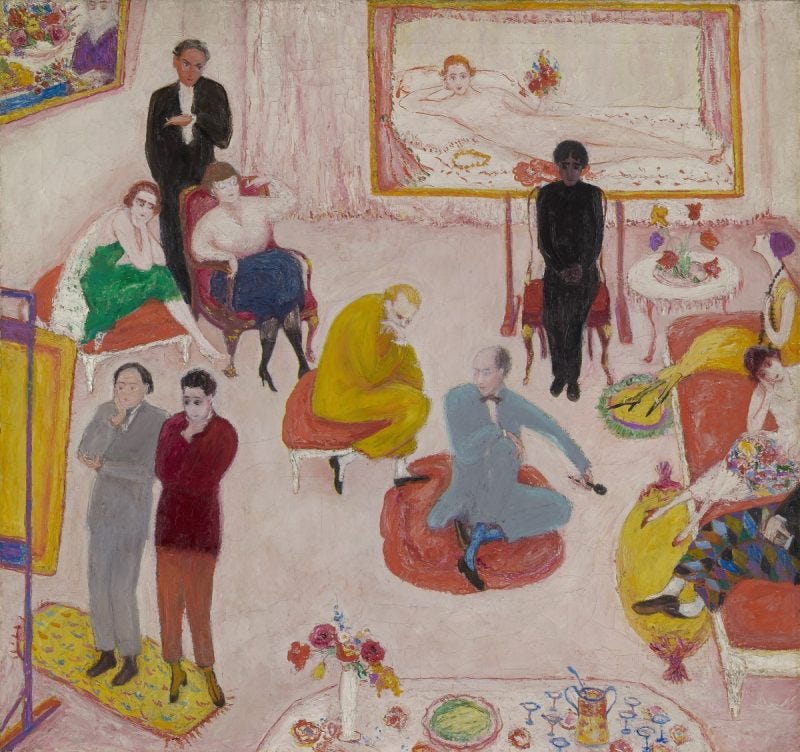
studio party by florine stettheimer
I would like to be looking forward to a holiday. Not on the actual holiday, though I love that as well, but in the right before. I’d have my tickets all booked, and my hotels sorted out. I’d have a list of things I want to do in a Telegram message, that’s how my partner and I organise holidays, on Telegram, lists from Lonely Planet or one of the newspaper’s travel section: 10 Things To Do For Free in X Destination! I’d be going abroad on this holiday, so my passport would be with the visa office, and as always, I’d be a little scared that this time maybe I wouldn’t get a visa, but it would be okay in the end, I’d absolutely get it. I’d update my Facebook, say, “We’re travelling to X on these dates!” and my friends and acquaintances in that country would message me and say, “Well then we must meet” and I’d say, “Absolutely!” and we would.
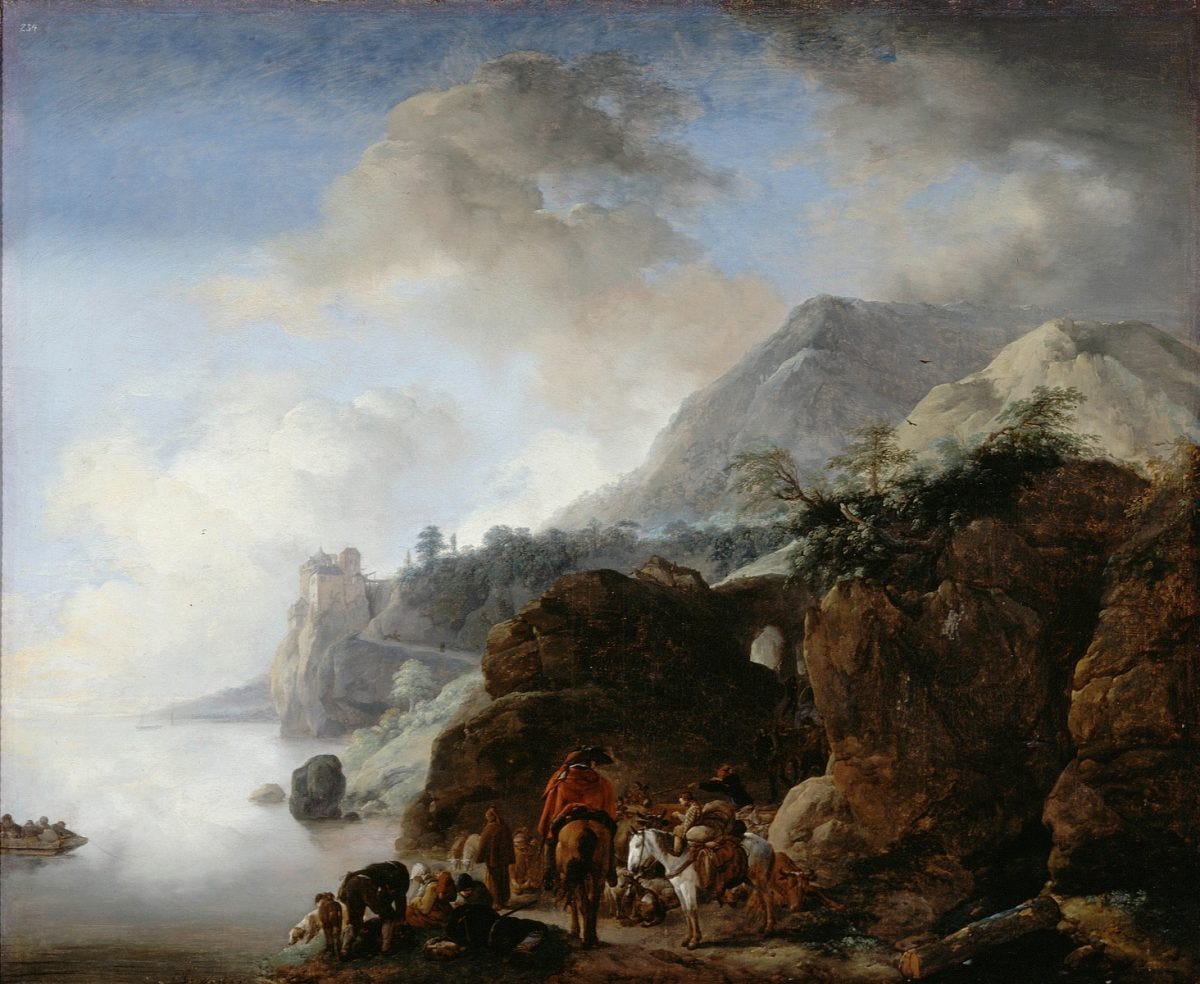
travelers awaiting a ferry by philips wouwerman
I would like to write about these things without thinking of worse losses than missing holidays and dinner parties. I would like to stop thinking about death and poverty and lost jobs and rising counts for just FIVE FUCKING SECONDS please.
I would like to meet you for brunch. Maybe we’d be slightly rushed for time and we’d go to Coast Cafe, where we’d get Bloody Marys and calamari rings or maybe we’d have a little longer and we’re celebrating something so we go to Olive and have their bottomless brunch, and we sit there for hours, drinking all the wine we can hold in our bellies, eating shanks of meat. You might get eggs, you like eggs, but I’d only be there for the big ticket stuff, the paisa vasool as they say. At the end of it, squint eyed with drink and the coffee we drank rapidly to sober ourselves up for the taxi home, we’d take a selfie, cheeks pressed together, grinning madly at the camera.
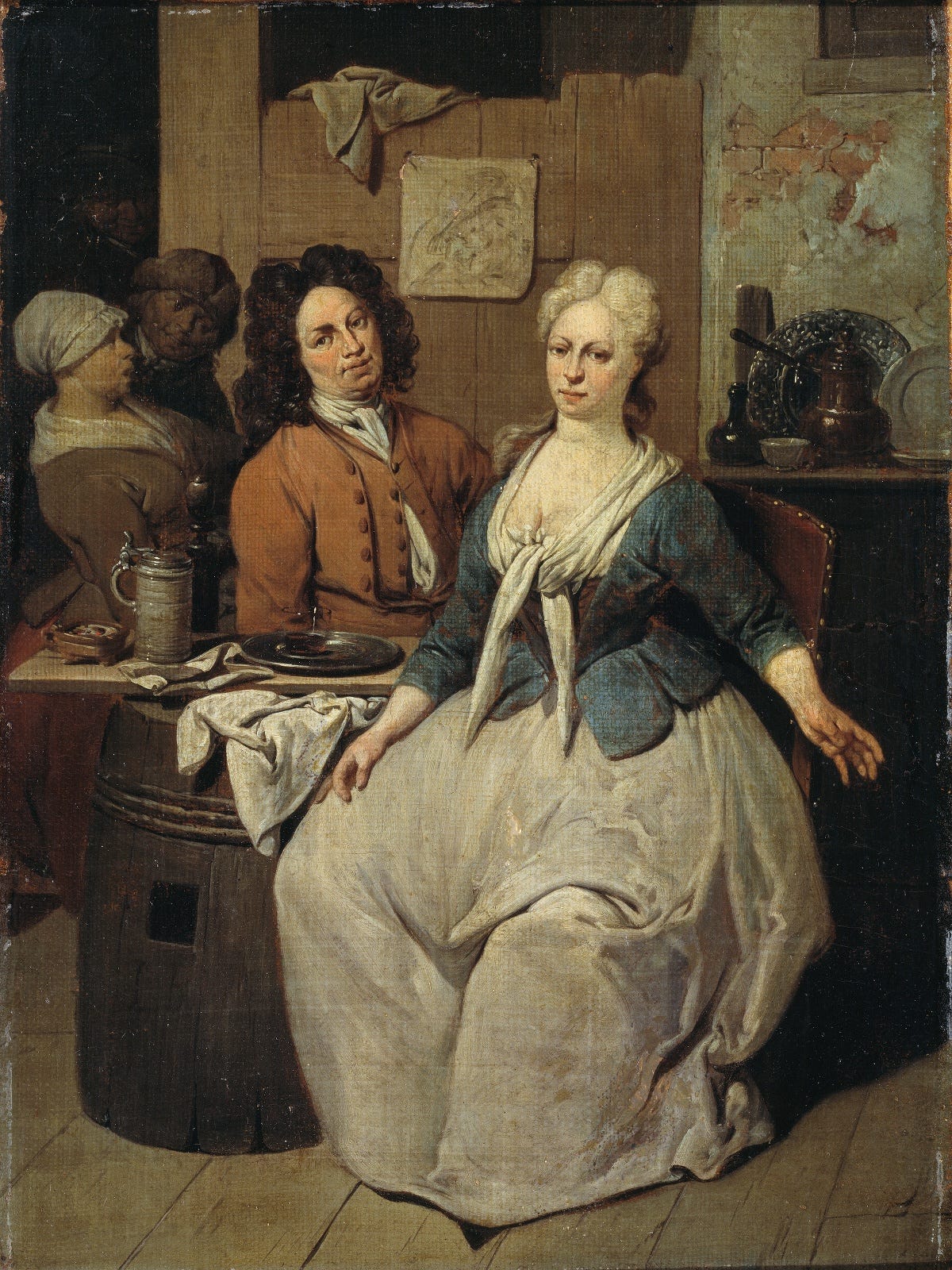
private meal by Jan Baptiste Lambrecht
I would like to go to a doctor’s office. Okay, no, no one actually wants to go to the doctor’s office, but I’d like to know that tomorrow if I woke up with a sudden desire to get my teeth cleaned or to have a quick check up that I can just go, no phoning in advance except to make an appointment. The same with salons. I’m growing my hair out so I don’t need a salon right now, but I want to know that I can go to one when I want to go to one.
I’d like to talk to someone I dislike again, do you know what I mean? I want to go to a gathering, and meet someone there that I realise I truly cannot stand after five minutes of their conversation and I’d like to duck away awkwardly and bitch about them on the ride home, like, “Can you believe they said that? What a douche!” and we’ll laugh and it’ll be a story I can text my friends about with lots of eye rolling emojis.
I would like to go everywhere and do everything. I would like for months not to roll into each other, for my planner to be full again, for me to roll my eyes and say, “Wow, I can’t believe this month is over already” because I’ve been so busy, not because each day melts into the last one and on and on till I can predict the days I am up and the days I am down, with the same predictability that I get my period or that we run out of groceries.
I would like to sleep for a year and a day, to wake up on the other side, be all, “What did I miss?” but also I want to stay awake and alert and watch everything with my beady eyes, take stock of your life and my life and all of our lives, but also wishing that Parallel Universe Me is doing something fun this year. Parallel Universe Me has also finished the edits of both the first drafts she wrote, she’s been sending out the manuscript, she’s organised and efficient and ahead of the game. I do not think we could get along, not when she is in her dress with the cinched waist and her heavy earrings shaped like beetles that she bought at H&M and I am sitting here without a bra, my whole body slooping downwards, feeling like even though I just woke up this morning, it’s already nighttime and time for me to go to sleep.
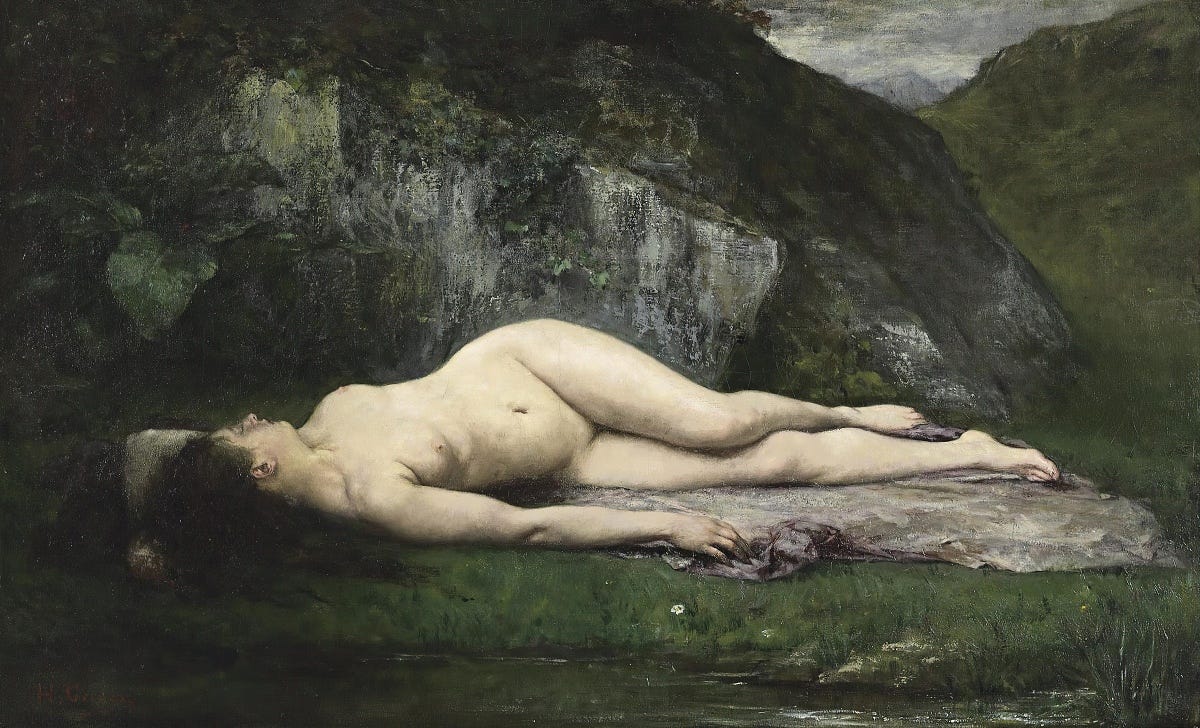
a sleeping bather by henri gervex
I would like to have faith in the system, to believe in the government must be as much an act of faith as believing in god, and how nice to just put your problems in someone else’s hands, let them deal with it, you just follow orders like a little mindless drone. “They’re doing all they can,” I would say, waspishly, to anyone who challenged my thinking. I would like to believe in a magic vaccine, one shot to cure us all, that will come out by the 15th of August, because they promised. They promised. I would settle for believing in one that comes in November, because I would like, oh, I would like, to celebrate my December birthday in a manner that is both social and minus any distancing whatsoever.
I would like to rejoin the world. I would like for us to emerge better people, and if not that, I’d like us to be the same garbage people we always were, the world a different kind of hellfire, but our world, our world, right? So vast, so peopled, not just narrow corridors and low ceilings and “what’re we watching with dinner tonight?”
Yeah, well.








